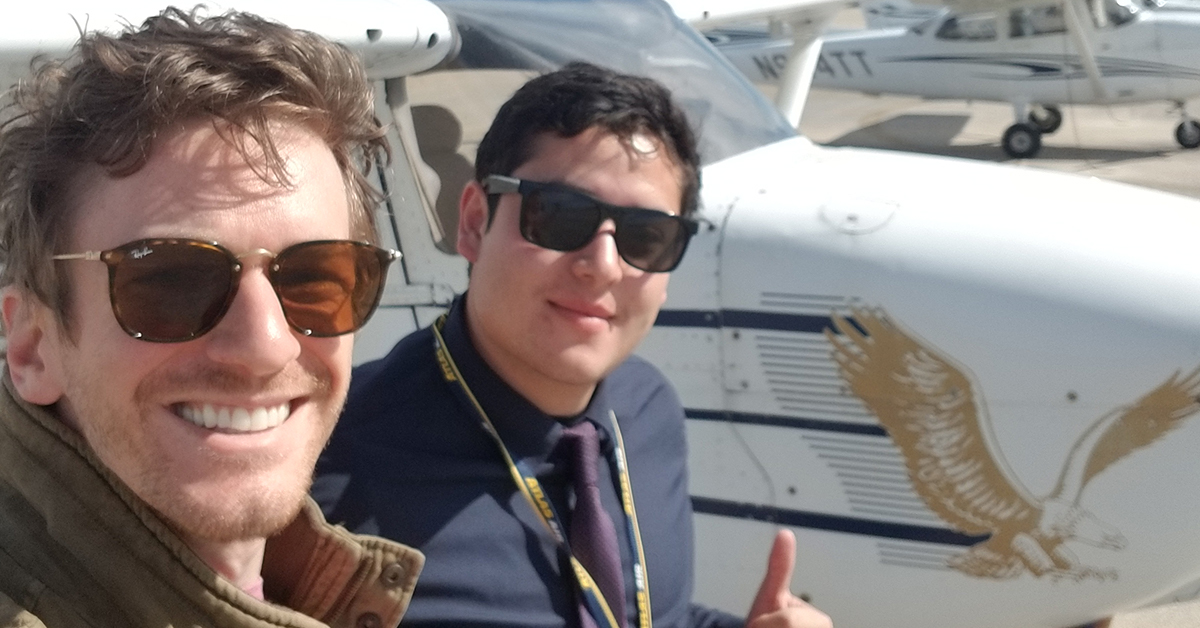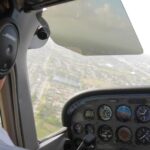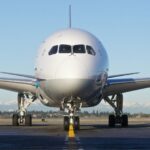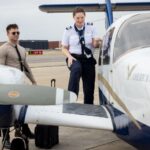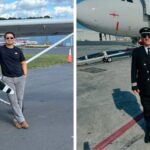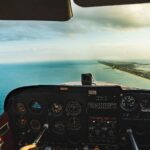Pilot’s Digest: How did you get into aviation?
Eric Moffett: My dad is a pilot for Delta, so I have always had a little bit of interest in aviation. I went to college for business management because I did not have a solid idea of what I wanted to do. After graduating college, I realized that getting a good job takes more than a college degree today. I think this is when I started to take my future career seriously. My dad suggested I look into Air Traffic Control (ATC). I did some research and found it to be a solid career path that needed people. I really had no clue what this job would be like, but I am very goal oriented, so I pushed through the schooling and training. I found myself really enjoying the aviation industry. It is a very exciting and interesting experience. I was an air traffic controller for about six years. It is a good job, but I found myself wanting to be more involved in aviation. It is one thing to help pilots navigate around a storm and quite a different thing to be flying around one. I went on an introduction flight and found it exhilarating. After researching the piloting side of aviation, I found that there is a great need for pilots. There is no better time to get into the industry than now. I could have taken flight classes after work and slowly worked my way to a pilot career, but that would take a long time. I knew from my dad that the quicker I could get into the industry, the better it would be for my career in the long run. So I jumped in head first. I quit my job as an air traffic controller and began flight training full time.
PD: What similarities have you found from the ATC realm to the flying realm that have helped you?
EM: Learning to talk on the radio to ATC is a huge part of learning to fly. The ATC lingo is very specific and can sound like another language. I understand that ATC can be very intimidating to a new pilot, especially when ATC is busy. I feel like I was able to skip a huge learning hurdle by already knowing how to talk to ATC. It is also very helpful to know what ATC is dealing with on their end. I would recommend all pilots at some point take a tour of their local ATC tower. Most ATC facilities would be happy to show you their side of the mic.
PD: What challenges did you hit in your pursuit of becoming a pilot, and how did you overcome?
EM: It is a lot of work. There is a lot to learn, but American Flyers does a good job of encouraging and preparing its students for success.
PD: Why did you choose American Flyers?
EM: At first I was all for going another route. There is another flight school that has a bigger online presence than American Flyers. I was sure I was going to go that route. My wife told me her friend recommended American Flyers, and she wanted me to check it out. I set up an appointment to see both schools. There was a night and day difference between the two schools. Walking in, I knew I was going to use the other program, walking out of those appointments my mind was changed completely. The two big factors that swayed me is American Flyers’ flexibility with scheduling and their personalized one-on-one touch to training.
PD: What has been the best part about being a certificated pilot?
EM: Flying is an amazing experience. Flying solo and being confident in your own skill and knowledge to fly is incredibly freeing.
PD: What is the next step you plan to take in your aviation journey?
EM: CFI, CFII to train others. There is no better way to make information stick in your mind than to teach it. This route also builds hours fairly quickly.
PD: What are your goals in aviation?
EM: To work for one of the major airlines.
PD: What advice do you wish someone would have given you before you started your training?
EM: I still feel very new to the pilot side of the industry. I don’t think I’m far away enough from my training to see my mistakes yet. I bought a couple of books that I didn’t really use, a total of around $50. Besides that, I don’t have anything else that I would have done differently.
PD: What advice would you give someone interested in becoming a pilot?
EM: Start as soon as possible and be consistent. The more time you can consistently put towards your training each week the easier the training will be.




